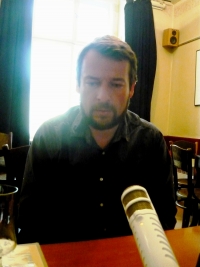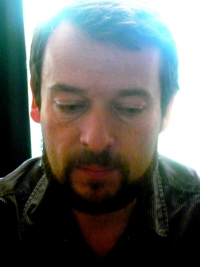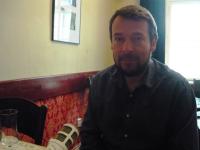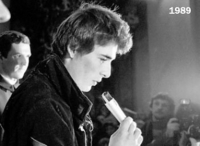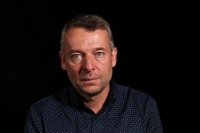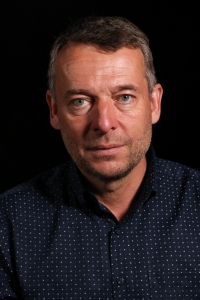Don’t resign, don’t think only of yourself and don’t expect miracles

Download image
Šimon Pánek was born on December 27, 1967, in Prague. In the 1950s his father was in communist prison for his political beliefs. His mother was an economist by profession, but later studied art history and worked in the National gallery in the modern art collection. They got divorced in the time of the Normalisation. Pánek talks of his youth as of the happy times he spent hiking in nature and at weekend cottages. He spent his adolescence travelling with his friends in the so-called “expedition group”. During these years he had the opportunity to meet the traveler and writer Jaromír Štětina. He studied Biology at the Faculty of Natural Sciences of the Charles University but didn’t finish his studies. In 1988 he co-organized a humanitarian collection for the victims of a devastating earthquake in Armenia. In 1989 he co-founded the student movement STUHA. He participated in all the anti-Communist demonstrations that took place between 1988 and December 1989. By coincidence (he was making money somewhere outside of Prague to finance his expeditions) he wasn’t present at the demonstration on the National avenue on November 17, which set off the downfall of the Communist regime in Czechoslovakia. During the student protests in early November 1989 he was elected to the presidium of the Student coordination center. He also became a member of the Civic forum and an envoy of a special team of Václav Havel that was charged with negotiating the formation of a new democratic government. In 1990 he was co-opted to the Federal Assembly for the Civic forum but he didn’t accept the offer. He refused the mandate even after in June 1990 he was elected to the Assembly by preferential votes from a back position on the candidates list. He claims that he had other plans and didn’t want to go into politics at that time. He was one of the founders of the private Information agency Epicentrum where he worked. He further co-founded the Lidové noviny foundation, which later became the NGO Člověk v tísni (People in need). He worked in the Office of the President of the Republic and was engaged in film production. Today, he’s the director of the largest Czech humanitarian, development and human-rights non-governmental organization Člověk v tísni.
